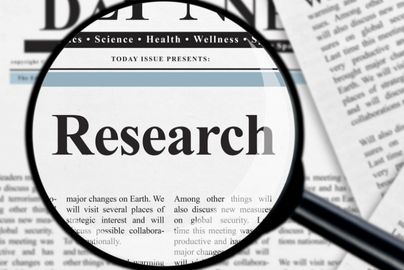Biorepositories Core Resource
Patient Resources
If you receive care at UC Davis, please understand that you may be approached for permission to use your specimens and medical information about your condition for research. You are always free to decline. If you are a tissue or blood donor, know that the UC Davis researchers are very grateful for your contributions.
-
Partners in Science: Your Contribution is Vital
View the videoarrow_forwardThis informative video by the Center for Ecogenetics and Environmental Health describes what happens to your blood or leftover tissue when you participate in a research registry or specimen collection.
-
Biospecimen Research Consent
View the videoarrow_forwardInformed consent presents potential human research participants with sufficient information — including anticipated procedures, risks, and benefits — to make an informed decision about whether to participate in research studies. View this video to learn more.
Samples (also called biospecimens or specimens) include materials from your body such as tissue, blood, skin, hair, saliva, and urine.
A biobank is a collection of biological samples, such as blood, and health information. Biobanks can be large and hold thousands of samples, or they may be small and hold only a few hundred samples. Different biobanks collect different types of samples and information. The types of information and samples collected depend on the specific purpose of the biobank. For example, some biobanks are specific to a particular disease, such as cancer. Other biobanks are population-based and contain samples and information from people in a specific
People from all backgrounds and communities can donate samples.
Researchers use your samples, along with samples from thousands of other patients, to look for ways to prevent, find, or treat health problems like diabetes, heart disease and cancer. Donating is a way that some patients cope with their disease. It also helps some families cope with the challenge of having a loved one who is sick. Many people find comfort knowing that by donating samples, they will help researchers make discoveries that can advance medicine and improve the treatment of others in their community.
If you consent to donate, blood or tissue samples not needed for your diagnosis or treatment will be preserved and made available for biomedical research. Information about you will be kept private by putting a code number on your samples. Researchers may receive information about your condition or treatment but they will not receive any information about who you are unless you consent separately to another study that lets researchers link your identity to your samples.
There are two ways you can donate a sample:
- You may choose to donate samples that are already being collected during a medical procedure. Often parts of your samples remain after your doctor uses what he or she needs for medical tests. These samples are usually destroyed. But if you give consent, samples that aren’t needed for your medical care and be used for research. You will not need to have any additional procedures for this type of donation.
- Or, you may choose to donate samples through a procedure that is not related to your medical care, such as a blood draw or saliva swab, for research purpose only.
If you are a patient at UC Davis, you may also email the UC Davis Biorepositories Core Resource for more information on donations at UC Davis.
Researchers use donated tissue and blood samples to study what causes health related issues such as cancer and other diseases. Some studies aim to improve the ability to diagnose symptoms to diseases or cancer at the earliest possible stage. Other studies are exploring new and better treatments for patients, or new ways to prevent diseases from occurring in the first place.
Donating tissue or blood samples might not help you directly, but your donation could help make scientific advances for others with your condition in the future. Because your tissue and blood samples are extremely valuable for research, by consenting to donate them, you:
- Ensure that leftover tissue or blood from your treatment will not be thrown out if there is a research study that can use it.
- Join teams of scientists, clinicians, and other experts working to defeat cancer and other diseases as quickly as possible.
No. If you are a patient, your treatment will not change whether you consent to donate samples or not.
No. There are no costs to you or your insurance if you consent to donate samples.
No, you will not be paid or receive and other gifts or rewards. Many donors say they feel a sense of satisfaction by knowing they are helping research. UC Davis is very grateful for your donation and participation—past and present scientific and medical advances depend on patient contributions like yours.
The various biorepositories at UC Davis do not make money from your tissue or blood samples. The costs of managing a biobank are covered through a variety of sources. However, it is possible that a discovery made from studies that use your samples could result in a profit to a company other than our collaborating institutions.
No. Because a code number will be assigned to your samples, it is not possible to provide individual results.
As long as you are at least 18 years of age and are a UC Davis patient, you are eligible to donate your sample for research. To speak with someone at UC Davis who can answer your questions about donation or provide you with additional information, please contact the Biorepositories Core Resource at lsolis@ucdavis.edu.
No. Just as you do not get to decide who gets your blood when you donate at a blood drive, you cannot choose how your samples and information will be used in research.
Researchers will use the samples and information you donate. The biobank will not contact you when your samples or information are sent to researchers.
A committee of experts and patient advocates will review each request for a sample to make sure the proposed research is ethical, useful and based on good science. After the project is approved, the biobank will give researchers samples and related health information.
There is no limit on how long samples and information can be stored and used. Samples can be kept and used in research until the donor asks to have them destroyed or the biobank closes. If the biobank closes, your samples may be destroyed or sent to another biobank.
If you change your mind, contact your doctor to discuss your options. The right to withdraw your samples from research varies by biobank. You should make sure you understand your options before you sign your consent form. Usually, samples and information that have already been given to researchers or used in research will not be returned. Research results from your samples or information cannot be changed or stopped. You may have the right to withdraw your samples and information that have not yet been used in any research. If you have questions about withdrawal of your consent to donate, please email the Biorepositories Core Resource office.
You will receive the results from your medical tests (such as a biopsy or blood test). But, you will not receive the results from research done on your samples.
Donated samples are used for broad research and future discoveries, not for discovering information for each patient. Researchers may publish articles about their findings but they will not identify the individuals whose samples were used.
Neither you nor your family will be treated differently after you donate samples. There are measures in place to protect your privacy.
In order to do research with your samples, researchers may need to have some information about you. This information helps researchers learn more about the specific diseases and treatments that they are studying. Information that researchers need may include:
- Your gender
- Your racial or ethnic group
- Your age
- Your family history
- Your medical history
One of the most important things for biobanks is to keep your information private. Biobanks are not allowed to release your personal information without your consent. To protect your privacy, your samples will be coded with a random number instead of your name. Your address, phone number, Social Security number, date of birth, and anything else that could identify you will be removed before the records are sent to the researcher. Federal law requires the protection of your private medical information.
There are very few risks to donating your samples for research. The greatest risk is the accidental release of information from your health records. The chances that your information will be released outside the biobank are very small. There are security measures designed to prevent this from happening.
You may be uncomfortable with the fact that the biobank will not contact you before your samples are selected for research studies. If, because of your religious or other beliefs, you would not want your samples to be used for certain types of research, donation may not be right for you.
Your doctor or nurse will prepare you for any physical side affects you may have from having a medical procedure, such as bruising or soreness at the place where your samples are taken.
If you have more questions about donating a research sample to UC Davis, please email us.


